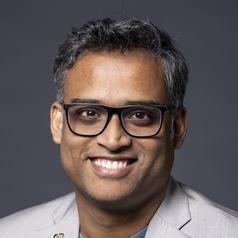
Abhishek Ray
Assistant Professor of Information Systems and Operations Management, George Mason University
Dr. Abhishek Ray is an assistant professor at the Information Systems and Operations Management Area at the Costello College of Business, George Mason University. Dr. Ray holds a Ph.D. (MIS) from Purdue University and a B. Tech. (Electrical Engineering) from NIT Allahabad and an MBA from IMT Ghaziabad. Dr. Ray worked in IT consulting for five years before entering academia. His research interests include digital and decentralized social networks, game-theoretic policy concerns in online platforms, and big data computational challenges. He uses economics, linear/nonlinear optimization, operations research, and machine learning for his research. He has presented at leading conferences such as ICIS, IEEE Blockchain, and EVOCOP. His work has been published in top journals such as Information Systems Research, IISE Transactions and Journal of Management Information Systems.
Less ![]()
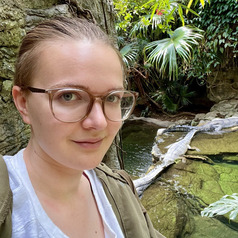
Abi Crane
Postgraduate Researcher, University of Southampton
I am a PhD student researching the biology of Mesozoic birds at the University of Southampton, with an emphasis on reproductive biology and osteology. I completed an MPhil in the Earth Sciences department at University of Cambridge researching the morphology of the mandible of crown-group and crownward stem-birds.
Less ![]()
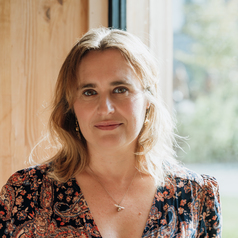
Abi Curtis
Professor of Creative Writing, York St John University
Abi is Professor of Creative Writing at York St John University. She has won an Eric Gregory Award and Somerset Maugham Award for her poetry collections, The Glass Delusion (Salt, 2013) and Unexpected Weather (Salt, 2009). Abi has a PhD in Creative and Critical Writing, she joined York St John in 2010 and was Subject Director for Creative Writing until 2017, and is now co-ordinating the MA and MFA programmes.
Her work often engages with other disciplines, such as visual art, science and history: she has worked with the Darwin Centre at the Natural History Museum and had poetry set to music by composers. Her writing explores such topics as mushrooms in Freud; the power of the squid in literature; the relationship between poetry and ventriloquism; climate change; ‘speculative elegy’, and pollination.
Abi's most recent work is a speculative fiction novel, The Headland, is published by Gold SF (Goldsmiths/Penguin)
Less ![]()
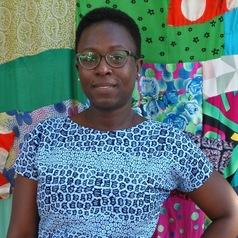
Abiba Yayah
Postdoctoral Associate, University of Calgary
I obtained a PhD in political science from the University of Stellenbosch in 2020. My area of interest is in the area of gender and politics. I have worked briefly as an independent consultant for Pure Earth (formerly Blacksmith Institute), an NGO that identifies, cleans up and solves pollution problems.
Less ![]()
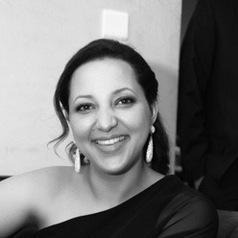
Abier Hamidi
PhD Candidate, Faculty of Health & Social Sciences, Bournemouth University
I am a PhD student and PR/Marketing specialist with over 20 years experience.
As a PR/Marketing consultant, I have elevated the brand awareness, performance and profitability of several global brands as well as start-ups. I specialise in developing consumer focused, holistic and integrated communication/marketing strategies across multiple sectors.
As a PhD student, My overarching interest is in how information can be disseminated and interpreted, understanding the impact of culture, religion and language and how to utilise them in ensuring the correct messages are not only being communicated effectively, but done so, ethically and respectfully.
Currently I am researching the reflections of the specific practices and norms in Libya with regards to the communication and education of HIV and in particular, to Libyan women. Although my research focuses on Libyan women, its relevance and impact are universal as the learnings can be applied to Muslim women, Arab women, women in developing countries as well as migrants and refugees, as the challenges they face are similar.
Less ![]()
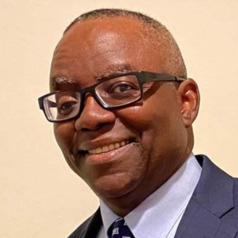
Abieyuwa Aghayere
Professor of Structural Engineering, Drexel University
Dr. Abieyuwa Aghayere is a Professor of Civil, Architectural and Environmental Engineering whose research focuses on structural design - concrete, steel and wood, structural failure analysis, retrofitting of existing structures, new structural systems and materials, engineering education. Dr. Aghayere has been cited as a structural failure analysis expert on CNN, CTV News and Voice of America regarding the collapse of the Champlain Towers South condominium in Surfside, Florida. He has been featured in numerous articles in the Miami Herald, The New York Times, USA Today and The Wall Street Journal. His contributions regarding the Surfside condominium collapse have been included media stories and coverage that earned a team of reporters at the Miami Herald the 2022 Pulitzer Prize in the Breaking News category. He has been featured on podcasts and in documentaries on The Discovery Channel, The BBC, and The Smithsonian Channel discussing the Surfside condominium collapse, and has delivered several invited lectures on the collapse, notably to the National Institute of Standards and Technology (NIST) - the federal agency charged with investigating the Surfside condominium collapse.
Less ![]()
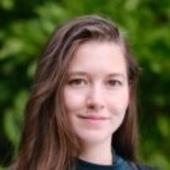
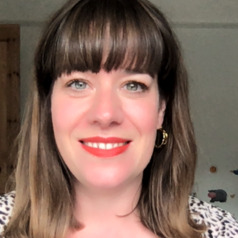
Abigail Loxham
Associate professor, University of Liverpool
Abigail has a PhD from the University of Cambridge whereI also completed an MPhil and BA. She has worked as a lecturer in Hispanic Studies at the Universities of Manchester and Hull and a Postdoctoral Research Fellow at the Centre for Critical and Cultural Studies at the University of Queensland, Brisbane, Australia.
Abigail has published widely on Spanish and Catalan cinema and television with a focus on memory, national identity, gender and feminism. Her monograph 'Cinema at the Edges: New Readings of Julio Medem, Bigas Luna and Jose Luis Guerin' is published by Berghahn Books. She is currently working on a co-authored monograph, with Prof. Anja Louis, Sheffield Hallam, on Feminism and Femininities in Spanish TV Drama (under contract with Palgrave MacMillan) and co-editing a volume on Gender and TV in Iberia and Latin America (under contract with Bloomsbury). Her current project focuses on mediating feminism in contemporary Spanish popular culture.
Less ![]()

Abigail Marks
Professor of Work and Employment Studies, Heriot-Watt University
Director of the Centre for Research on Work and Wellbeing (CroWW).
Dean's Representative for Exam Boards
Course Co-ordinator for Changing Trends in Employment, Critical Approaches to Management, Qualitative Research Methods
Teaching - Research Philosophy & Design
Abigail’s research interests focus on workplace and community identities, social class, the meaning of work and the ICT industry.
Abigail is on a number editorial boards including Work, Employment and Society, New Technology Work and Employment and the Journal of Human Resource Costing and Accounting.
She has held several visiting positions including the University of Melbourne, as well as a number of external examining appointments.
Less ![]()
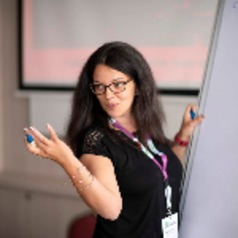
Abigail Parrish
Lecturer in Education, University of Sheffield
Abigail Parrish teaches on a range of programmes in the School of Education at the University of Sheffield, UK. A former modern foreign languages teacher, her research focuses on student motivation to learn a language, particularly in school settings, using Self-Determination Theory. She is also interested in student choice and multilingualism.
Less ![]()
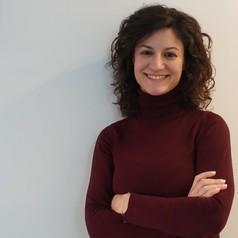
Abigail Jareño Gómez
Profesor de Psicología, Universidad CEU San Pablo
Profesional de la psicología desde el 2011. Profesora en la Universidad CEU San Pablo desde este mismo año. Doctorada en psicología en 2020. Especializada en personalidad, métodos concretos de investigación cualitativa, gestión emocional. Con años de experiencia terapéutica. Muy interesada en una mirada humanista y en el crecimiento personal integral.
Less ![]()
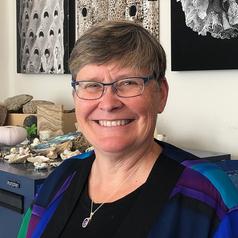
Abigail M Smith
Professor of Marine Science, University of Otago
BA Colby College, Waterville Maine USA 1982
SM MIT, Cambridge MA USA 1984
DPhil University of Waikato, Hamilton NZ 1992
Have been an academic at University of Otago since 1993
Less ![]()
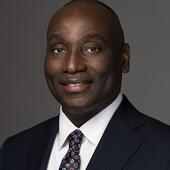
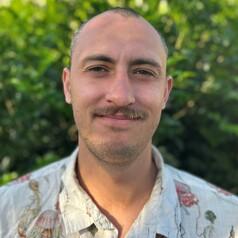
Abraham Gibson
Research Fellow, Faculty of Science and Engineering, Southern Cross University
Postdoctoral research fellow, investigating the interactions between agriculture, soils and climate at Southern Cross University. I am especially interested in the links between sustainable grazing and soil carbon, how soil management can buffer against drought and the nature and causes of agricultural drought in Australia.
Less ![]()
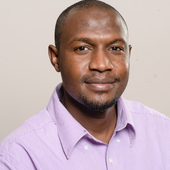
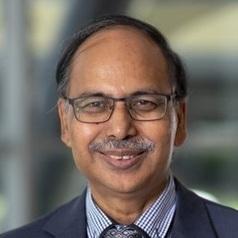
Abul Shamsuddin
Professor of Finance, University of Newcastle
Abul Shamsuddin is Professor of Finance at the University of Newcastle. He received his Masters and PhD from Simon Fraser University, Canada. Abul has previously served as Head and Dean of the Newcastle Business School, Assistant Dean, Director of Postgraduate Studies, and Head of the Accounting and Finance Discipline. Abul has led the EQUIS accreditation and AACSB reaccreditation of the Newcastle Business School. He has served as a reviewer for the Excellence in Research for Australia (ERA) initiative and a Peer Review Team member for the AACSB and EQUIS accreditation bodies.
Abul's research interests include Asset Pricing, Islamic Finance, Banking, and Corporate Governance. Abul has published over 40 A/A* ranked journal articles. His publications have appeared in Journal of Corporate Finance, European Accounting Review, Journal of Empirical Finance, International Review of Finance, Financial Review, Energy Economics, Journal of Fixed Income, Emerging Markets Review, Economics Letters, Journal of International Financial Markets, Institutions & Money, Pacific-Basin Finance Journal, Accounting and Finance, International Journal of Forecasting, Review of Income and Wealth, Quantitative Finance, and Finance Research Letters, among others.
Less ![]()

Achmad Nizar Hidayanto
Vice Dean for Resource, Venture, and General Administration, Faculty of Computer Science, Universitas Indonesia
I have a strong interest on information systems-related research such as information technology management, information technology adoption, and e-business.
Less ![]()
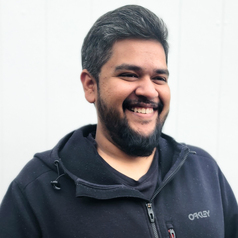
AD Narayan
Visual Effects Artist and Lecturer in Digital Communication, Auckland University of Technology
Aditya 'AD' Narayan is a Digital Communications lecturer in the School of Communication Studies. He is active in Aotearoa's film and television industry. He has spent a decade working in visual effects and motion design. Some of his latest film and TV credits include work on The Royal Treatment (Netflix), Evil Dead Rise (New Line Cinema / Warner Bros.), Red, White and Brass (Piki Films), and Joika/The American (Four Knight Films). He has also been a Visual Effects Supervisor for TVNZ's Wilde Ride and for Lightbox Original High Road - an award-winning web series spanning three seasons of content. He has supervised VFX and CG on several high-budget commercial projects.
Less ![]()
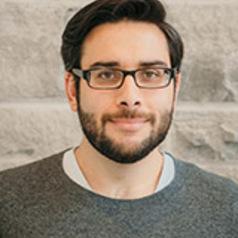
Adam Ali
Assistant Professor, School of Kinesiology, Western University
Professor Ali's research explores anti-Islamic racism, radicalization and sport in the post-9/11 era, and is grounded in post-colonial, feminist, and critical race theory. His current research also focuses on the role of sport for international development as it pertains to sustainability and the physical environment.
Professor Ali's work appears in the Sociology of Sport Journal, Diaspora, Indigenous, and Minority Education, and Frontiers in Sports and Active Living.
Less ![]()
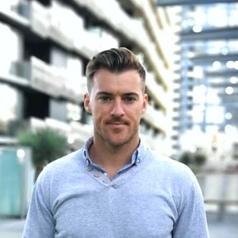
Adam Bartley
Postdoctoral Fellow, RMIT Centre for Cyber Security Research and Innovation, RMIT University
Dr Adam Bartley is a post-doctoral fellow at the RMIT’s Centre for Cyber Security Research and Innovation, Fulbright Scholar, and program manager of the AI Trilateral Experts Group. In addition to this, he is also managing editor for AIIA’s Australian Outlook.
Less ![]()
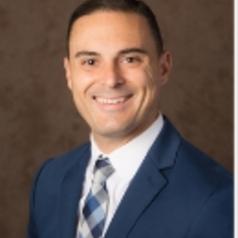
Adam Beissel
Associate Professor of Sport Leadership and Management, Miami University
Dr. Adam S. Beissel is an Associate Professor of Sport Leadership and Management (SLAM) at Miami University (OH). Adam’s research and scholarship interrogates the political economy of international sport events and the geopolitics of sport. In 2023, he published an edited monograph, The 2023 FIFA Women's World Cup: Politics, Representation, and Management in the Routledge Series on Women, Sport, and Physical Activity. The collection features chapters from leading international scholars and explores a range of issues as the world prepares for the 2023 FIFA Women’s World Cup.
Less ![]()
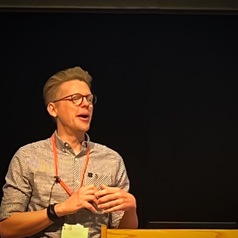
Adam Brett
Visiting Fellow in Education, Nottingham Trent University
Dr Adam Brett is a Visiting Fellow at Nottingham Trent University and a Lecturer and Researcher in Education at the University of Derby. He is also the co-founder of Pride & Progress: a network that supports schools and universities to develop their LGBT+ inclusion. Adam has 15 years of teaching experience in secondary schools, holding a variety of leadership positions, most recently as the DEI lead. He also has a Doctorate in Education exploring how schools can become more LGBT+ inclusive spaces. www.prideprogress.co.uk.
Less ![]()
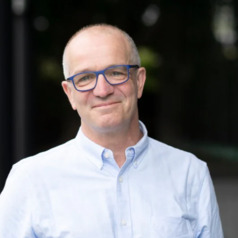
Adam Bridgeman
Pro Vice-Chancellor, Educational Innovation, University of Sydney
I have dedicated my career to enhancing student learning and the student experience and have received numerous teaching awards in the UK and Australia, including four University of Sydney Vice-Chancellor Awards for Support of the Student Experience and Teaching Excellence, an Australian Learning and Teaching Council (ALTC) Award for Programs that Support Learning and an Australian National Teaching Fellowship.
I research into student engagement, educational technologies, and curriculum in higher education. In my current role, i am leading the University’s support for enhancing the learning experience for students through the development of collaborative and interactive teaching styles and the technologies that support and enable them. In 2023, this includes leading our response to the challenges and possibilities that embracing generative artificial intelligence in higher education will bring.
BA (Hons) in Chemistry, St Catherine's College, University of Oxford.
PGCE (Science), University of Birmingham.
PhD (Inorganic Chemistry), Trinity Hall, University of Cambridge.
Less ![]()
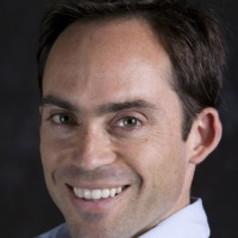
Adam Burgasser
Professor of Astronomy & Astrophysics, University of California, San Diego
Adam Burgasser is a Professor of Astronomy & Astrophysics at UC San Diego, and an observational astrophysicist investigating the coolest stars, brown dwarfs and extrasolar planets. A native of Buffalo, New York, Adam received his Bachelors of Science in Physics from UC San Diego and his Masters and Ph.D. degrees in Physics from the California Institute of Technology. He went on to be a Hubble Postdoctoral Fellow at UCLA, a Spitzer Postdoctoral Fellow at the American Museum of Natural History in New York City, and a member of the Physics faculty at MIT before coming back to UC San Diego in 2010. He has published nearly 700 peer-review articles, conference proceedings and book chapters in astrophysics and education research, and is best known for his work defining the T spectral class of brown dwarfs, investigations of binary star/brown dwarf systems, and studies of weather and radio emission in cool extraterrestrial atmospheres. Adam is an advocate for equity in the sciences, leading UCSD's UC-HBCU partnership in Physics with Morehouse and Spelman Colleges and serving as chair of the American Astronomical Society Committee on the Status of Minorities in Astronomy. He has been awarded UCSD's highest awards in teaching, mentorship, and championing equity, and was a Fulbright Scholar in the UK. A former national springboard diving champion in, Adam can still be found at the pool or the beach enjoying the water.
Less ![]()
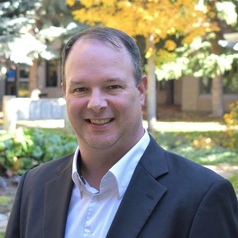
Adam Cave
Associate Dean Academic, Faculty of Business & Communication Studies, Mount Royal University
Dr. Cave joined Mount Royal University in August 2019 as Chair of the Department of International Business & Supply Chain Management. Before starting at MRU, he was the Chair of the Bachelor of Business Administration (BBA) at NAIT in Edmonton. He was also an Assistant Professor at the Hankuk University of Foreign Studies (HUFS) in Seoul, South Korea and prior to that he taught Kyungsung University in Busan, South Korea. Before embarking on a career in academic he was a Sales & Marketing Manager for a small hi-tech firm in Ottawa, Ontario and Syracuse, New York.
Dr. Cave has extensive teaching experience in International Business Strategy, International Marketing Strategy, International Management, Corporate Social Responsibility, Global Mobility and Global Supply Chain Management. He has also conducted a variety of research in CSR, Environmentally Responsible Management, Repatriation Concerns, International Joint Ventures and been published in such publications as International Business Review, Multinational Business Review, Journal of International Business & Entrepreneurship Development and Critical Perspectives on International Business.
Less ![]()
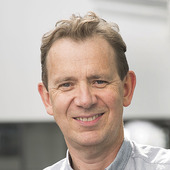
Adam Crawford
Professor of Criminology & Criminal Justice, University of Leeds, and Chair in Policing and Social Justice, University of York
Less ![]()
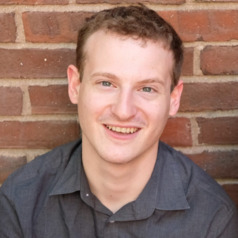
Adam Eichen
PhD Student, Political Science, UMass Amherst
Adam Eichen is a PhD student in political science at the University of Massachusetts Amherst. His research focuses on public opinion and democratic representation in the United States. Adam also serves as a UMass Poll research fellow, where he assists in the creation of national and state polls and analyzes survey results.
Less ![]()
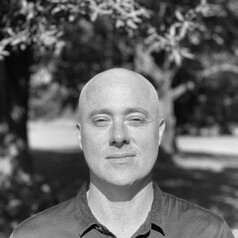
Adam Fish
Associate Professor, School of Arts and Media, UNSW Sydney
Adam Fish is an Associate Professor in the Faculty of Arts and Social Sciences, School of Arts and the Media, at the University of New South Wales. He is a cultural anthropologist, documentary video producer, and interdisciplinary scholar who works across social science, computer engineering, environmental science, and the visual arts. Dr. Fish employs ethnographic, participatory, and creative methods to examine the social, political, and ecological impacts of new technologies.
He has authored several books including: Hacker States (MIT 2020, with Luca Follis, Lancaster University, UK), about how state hacking impacts democracy; Technoliberalism (Palgrave Macmillan 2017), an ethnography of the politics of internet and television convergence in Hollywood and Silicon Valley; and After the Internet (Polity 2017, with Ramesh Srinivasan, UCLA, US), which reimagines the internet from the perspective of grassroots activists, citizens, and hackers on the margins of political and economic power. After the Internet was translated into Spanish in 2021. His most recent completed project was based on four years of collaboration with marine conservation drone operators across the world and resulted in a number of articles and the forthcoming book Oceaning: Governing Marine Life with Drones in 2024 with Duke University Press. Alongside this he is finishing a book on drone studies with Michael Richardson (UNSW) for MIT Press.
His current project focuses on how Aboriginal and Torres Strait Islander peoples benefit from renewable energy industries accessing their lands.
Less ![]()
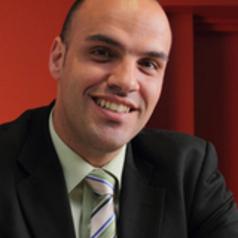
Adam Guastella
Professor and Clinical Psychologist, Michael Crouch Chair in Child and Youth Mental Health, University of Sydney
Professor Adam Guastella is the Michael Crouch Chair in Child and Youth Mental Health. His position is based at both Sydney Children's Hospital at Westmead and the Brain and Mind Centre, University of Sydney. His work aims to build collaborative partnerships between researchers, clinicians, and services to ensure that children and families receive the best available assessments and treatments to support well-being.
As part of this role, he is the co-lead of the Child-Neurodevelopment and Mental Health Team for the University of Sydney. This team aims to solve complex problems for children with neurodevelopmental dconditions and their families with a team of multi-disciplinary professors across the university.
Professor Guastella also has an established track record in human translational neuroscience. His primary interest is in using neuroscience to inform and develop novel treatments for young patients with mental health problems. This research has led him to study the neurobiology of social behaviour, its development in early life, and how this neurobiology relates to symptoms that cause distress and impairment. His research may also take the form of cognitive-experimental investigations and he has developed a number of mental health programs to support wellbeing for adults on the spectrum.
Less ![]()
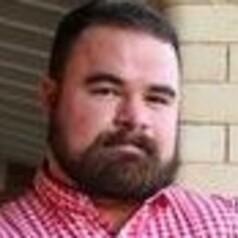
Adam Hoffman
Assistant Professor of Psychology, Cornell University
In my research, I investigate three primary questions as they pertain to adolescent development.
How do social identities develop and change over time?
Adolescence is considered to be a time of great change and development of social identities in the lives of adolescence. This line of research examines how social identities (e.g., ethnic-racial, gender, or sexual orientation) are changing over time and what contextual factors and socializing agents could be influencing this change.
How are social identities related to mental health, well-being, and academic motivation?
Research has generally shown social identities are positively associated with more adaptive outcomes?. However, there is still much to be known about what influences these associations and in what contexts. We are working to close this gap by investigating these relations and moderators across various contexts.
How can social identities be leveraged as assets to promote positive youth development and outcomes?
Research around social identities has exploded in the past 15 years, demonstrating at a stronger, more positive sense of self on the basis of various social identities promotes a host of adaptive outcomes. Surprisingly, little research has begun to develop ways to enhance and leverage these identities to foster better outcomes for youth. We are aiming to close this gap by developing interventions to shape identities to be congruent with positive youth development and outcomes.
Less ![]()
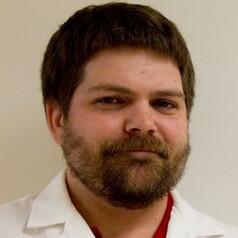
Adam Hume
Research Assistant Professor of Microbiology, Boston University
Which viruses a threat to human health?
New viruses are being discovered at a rapidly increasing rate by virtue of next generation sequencing of wildlife samples, including many viruses closely related to some of the deadliest emerging and reemerging viruses. In just the last dozen years, 9 new filoviruses have been discovered, all with unknown pathogenic potential. One of my main research interests involves characterizing differential host responses to pathogenic viruses and closely related non-pathogenic viruses to both be able to assess the possible pathogenicity of novel viruses as well as to try to target host response pathways involved in these divergent responses as potential points of therapeutic intervention.
My work focuses on some of the deadliest human pathogens, most notably filoviruses such as Ebola and Marburg viruses. Owing to the devasting disease and high mortality rates they cause, study of these viruses requires a Biosafety Level 4 (BSL4) laboratory such as the BSL4 facility we have at the NEIDL.
Studying uncultured viruses
One roadblock to the study of these new viruses related to highly pathogenic emerging and reemerging viruses is that most of these viruses have not yet been cultured. While creating recombinant viruses through reverse genetics approaches would seem to be a solution to this issue, a second barricade to these studies often prevents this: most viral genomes identified by next generation sequences lack terminal genomic sequences. These portions of the genome typically include sequences necessary for viral genomic replication and transcription, making rescue impossible in the absence of these sequences.
Lloviu virus, a filovirus first discovered in 2011 by sequencing of bat carcasses found in caves in Spain in 2002, represents such a virus. While Lloviu virus was recently isolated from Schreibers bats in Hungary (Kemenesi et al., 2022), it had not been cultured previously and sequence was missing from both ends of the genome. Using reverse genetics tools, including a previously developed Lloviu virus minigenome system, we were able to complement missing genomic sequences and rescue recombinant Lloviu virus and begin to study this virus (Hume et al., 2022) prior to it being cultured. As with all filovirus work, these studies were performed in our BSL4 facility. Importantly, we are now comparing our recombinant Lloviu virus to see how well it mirrors wild-type Lloviu virus. If these viruses behave similarly, this could provide a new blueprint for rescuing and determining the pathogenic potential of many viruses which may pose a risk to human health should a spillover event occur.
Human systems
While animal models have undoubtedly provided important information with regards to viral pathogenesis and transmission, the fact that there are many antiviral drugs and therapies that have been shown to be effective in animals but not in humans has made the need to develop and use human systems to study virus-induced host responses and correlates of pathogenicity self-evident. To this end, my research is focused on using these systems, including human primary cells, primary-based human organoids, and induced pluripotent stem cell (iPSC)-derived cells and organoids to study viral replication and pathogenesis. Collaborating with tissue engineers including researchers at Boston University’s Center for Regenerative Medicine (CReM), we have begun to explore how viruses manipulate these systems. Using transcriptional and phosphoproteomic approaches to study these systems, we are uncovering key pathways necessary for viral replication, allowing for targeted small molecular inhibition of host pathways to block viral replication. Using viruses of differing pathogenicity, we hope to also identify virulence markers in order to assess the potential pathogenicity of novel viruses which have not yet been known to spill over to the human population.
Less ![]()
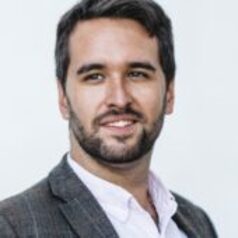
Adam Lenton
Assistant Professor of Politics & International Affairs, Wake Forest University
Adam Lenton is an Assistant Professor of Politics and International Affairs at Wake Forest University. His research focuses on the links between nationalism, political development, and security, with a regional focus on Russia and the former Soviet Union. His research has been published in Russian Politics and Problems of Post-Communism, and financially supported by the Harriman Institute of Columbia University and Carnegie Corporation of New York. He is currently working on a book project, based on his doctoral dissertation, which explores the macro-historical and symbolic sources of ethnic minority identities in Russia. He received his Ph.D. from George Washington University.
Less ![]()
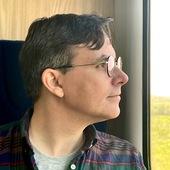
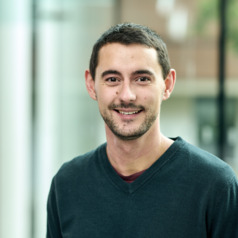
Adam Lowe
Lecturer, School of Computer Science and Digital Technologies, Aston University
I am a theoretical physicist, who obtained my PhD from Aston University in 2020. My main research focus is investigating quantum correlations from a game-theoretic perspective. My research can be applied to near-future quantum technologies, with particular relevance to quantum computing and networks.
Less ![]()
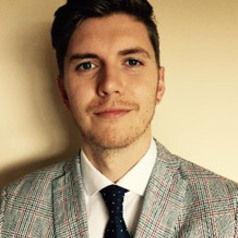
Adam McCann
Associate Professor of Criminal Law and Criminal Justice, University of Reading
Dr Adam McCann is an Associate Professor of Criminal Law and Criminal Justice at the University of Reading. His specific research interests and main publications concentrate on the legal framework surrounding end-of-life medical decisions in the context of broader governance and political theories. His work on assisted dying has been cited and recognised for ‘its important empirical dimension’ by the Dutch Supreme Court and listed on the European Parliament's selected reading on 'Assisted Dying in the EU and Beyond'. He has also provided expert evidence on comparative regulatory approaches to end-of-life law, upon invitation, to the UK Parliament, the Irish Parliament, and the first ever Citizens Jury in England on Assisted Dying .
Less ![]()
- Market Data


















